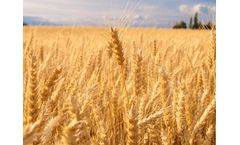Oilseed Crop Articles & Analysis
15 news found
As combines roll and the growing season draws to a close, now is the ideal time for farmers to step back and assess whether their crop nutrition strategies worked or didn’t. In a recent NUTRI-CHECK NET webinar, ADAS crop physiologists Dr Sarah Kendall and Dr Tamara Fitters shared how grain analysis and post-harvest reviews can play a pivotal role in refining nutrient strategies for future ...
The Yield Enhancement Network (YEN), founded by ADAS in 2012, has helped growers in the UK and North-West Europe benchmark their crop performance and identify yield restrictions to improve their productivity. Declining sponsorship has meant that 2025 will be the last harvest analysed by the two largest YENs – cereals and oilseeds. The YENs for peas ...
We want this to be a useful open resource for anybody wishing to explore and understand crop pests and disease trends, whether they are a farmer, researcher or a policy maker.” The Defra Survey of Crop Pests and Diseases will continue in 2024 and this year’s data will be added to the database once all the 2024 winter wheat and winter ...
This explains why the mood continues to be rather sober at the moment, although prospects for the upcoming oilseed rape seeding are definitely positive: Oilseed rape cannot be replaced as it is the most important foliage crop in many crop rotations Oilseed rape is the recovery crop for cereal ...
More than half the cereals and oilseed crops grown in the EU are currently fed to animals. The paper suggests that agroecology – using ecological principles first and chemicals last in agriculture – presents a credible and holistic way of feeding Europe by 2050. ...
Varied establishment of oilseed rape (OSR) crops last Autumn, is likely to have resulted in a protracted flowering period in areas across the UK, leaving crops susceptible to Sclerotinia infection over the coming weeks. ...
A nutritional boost to stimulate root development and provide for oilseed rape’s additional nutrition needs, will help maintain health and reliance in oilseed rape crops this spring. Despite the losses to flea beetle and drought, particularly in East Anglia, many oilseed rape crops have made a decent ...
Introducing an Ilex foliar phosphite into your standard agro-chemical programme can deliver significant returns in both plant health and yield while keeping inputs at a manageable level. For winter oilseed rape crops, the application of the foliar phosphite OilSeed Raiser delivers Phosphorus in both the phosphate and phosphite forms maximising ...
The system is operated by a control panel for precise application, resulting in evenly coated seeds, helping to ensure consistency and minimizes the risk of product exposure. Jumper: a new oilseed rape variety delivering high yields Globally, oilseed rape has become the second most important oilseed crop after soy, and the ...
An International consortium of more than 30 research institutes, coordinated by scientists at INRA and CEA-Genoscope and associating CNRS and University of Evry, just succeeded in deciphering the complex genome of the recent oilseed rape1 (Brassica napus L, also known as rapeseed, rape or canola), the most important oilseed crop in Europe, ...
Syngenta announced today an agreement to acquire the German and Polish winter wheat and winter oilseed rape (WOSR) breeding and business operations of Lantmännen, the Swedish food, energy and agriculture group. ...
BySyngenta
DAVIS, Calif., Jan. 18, 2012 /PRNewswire/ -- Marrone Bio Innovations today announced that the U.S. Environmental Protection Agency has approved a significant label expansion for Regalia®, a biofungicide that boosts plants' natural defenses to fight fungal and bacterial diseases. The label expansion includes new soil applications, instructions for yield improvement in corn and soybeans, ...
His research and extension responsibilities include the investigation and development of resource efficient cropping systems for dryland crops that emphasize water management, weed control, and soil conservation. ...
The recent Pakistan floods have caused substantial damage to the country's crop research, washing away new seed varieties and test crops planted in the fields, and damaging buildings and equipment, leaving the country's research institutes in disrepair. So far, the floods have killed more than 2,000 people and affected a further 21 million, killed 200,000 livestock and destroyed 4.25 million ...
Cultivation of crops resistant to glyphosate, a commonly used herbicide, is limited in the EU1, though such crops are imported and processed. ...












